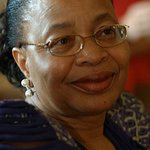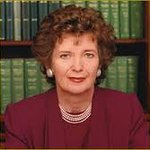The Elders today called upon leaders from the Intergovernmental Authority on Development (IGAD) regional bloc to urgently convene talks with the leaders of South Sudan to advance peace negotiations after a series of delays and setbacks.
The need for action is particularly acute ahead of the February 2020 deadline for a new unity government including rival leaders Salva Kiir and Riek Machar.
IGAD’s internal divisions over the past year have been a major obstacle to the high level engagement that is needed to address the political crisis in South Sudan. The Elders welcomed the fact that IGAD has reached agreement on a new Chair, Prime Minister Abdalla Hamdok of Sudan. They urged the IGAD heads of state to convene again as soon as is practically possible to keep up the momentum, and to bring together the leaders of South Sudan to steer them towards a political solution.
Graça Machel, Deputy Chair of The Elders and former Mozambican freedom fighter, said:
“South Sudan has suffered from chronically self-serving leadership throughout its young history of independence. The people of South Sudan have been paying a very high price. Real progress was made when IGAD heads of state urged the South Sudanese leaders to sign the Revitalised Agreement on the Resolution of the Conflict in September 2018, but since then I fear IGAD leaders have let the process drift. Neighbouring countries have a responsibility to promote peace, stability and justice for the protection of the South Sudanese people.”
The 2018 peace agreement has led to a ceasefire in most areas of South Sudan, greatly reducing the levels of violence. But the implementation of security sector reforms, and of a planned unity government, has already been delayed twice amid deep mutual distrust.
One crucial element is securing agreement on the number of states inside South Sudan, and their boundaries, which requires direct engagement by senior political leaders. Setting out a clear roadmap for implementing transitional security arrangements is also critical.
The Elders stressed the urgent importance of extending the ceasefire to the Equatoria border region of South Sudan. As well as the need to protect civilians, this is vital in order to strengthen preparedness against a possible spread of Ebola from the neighbouring Democratic Republic of Congo.
Gro Harlem Brundtland, Elder and former Director-General of the World Health Organization, said:
“The humanitarian needs in South Sudan have been a matter of grave concern for many years, but the threat of Ebola means it is absolutely essential that national and regional leaders act now to break the deadlock. If the political impasse persists and conflict continues, the consequences for the country and all of its neighbours could be catastrophic, long-lasting and profoundly destabilising.”






